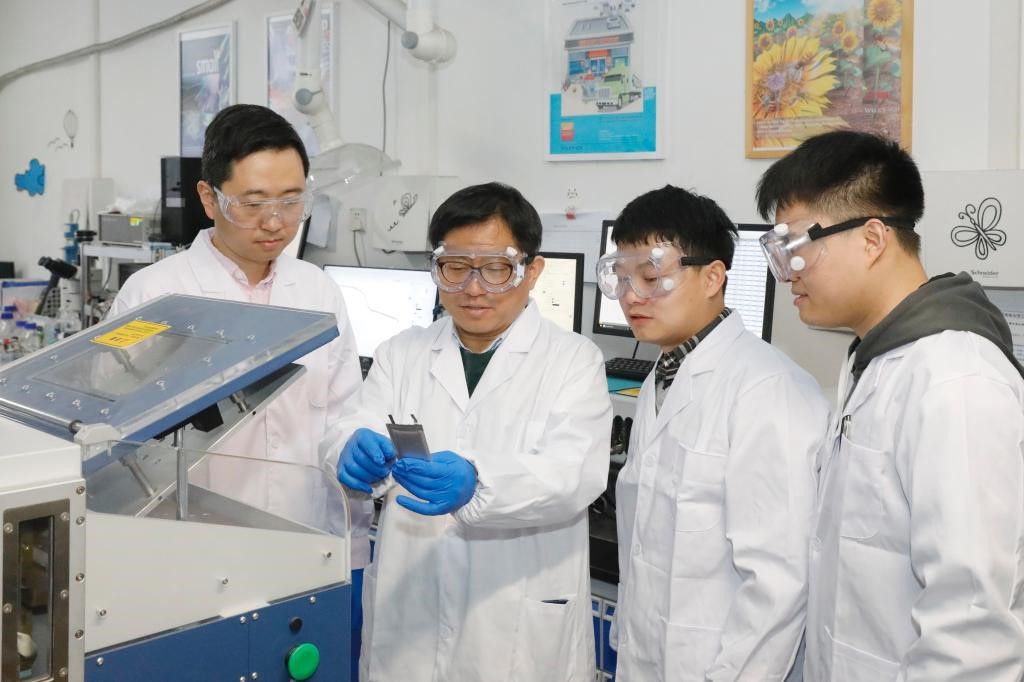Recently, Prof. Yang Quan-Hong and Prof. Weng Zhe from Nanoyang Group in School of Chemical Engineering and Technology published an article entitled “A non-flammable hydrous organic electrolyte for sustainable zinc batteries” in Nature Sustainability (https://www.nature.com/articles/s41893-021-00800-9). Dr. Han Daliang and PhD candidate Cui Changjun were co-first authors.

Aqueous zinc (Zn) batteries, featuring intrinsic safety and low cost due to the high abundance of raw materials and excellent ease and environmental compatibility in manufacturing, storage, use and recycling, have long been considered a potentially sustainable alternative to lithium-ion batteries in grid energy storage. However, the implementation of this technology still has to overcome some critical technical barriers involving Zn dendrite growth and side reactions (hydrogen evolution and corrosion) in aqueous electrolytes. The Zn dendrite growth causes short circuit and thus an early failure during charge/discharge cycles. The side reactions result in the continuous consumption of both the electrolyte and Zn anode during working or rest time. Therefore, they seriously limit the practicality of Zn batteries.
In this work, the authors reported a low-cost hydrous organic electrolyte for sustainable Zn batteries by coupling a hydrated Zn(BF4)2 salt with an ethylene glycol (EG) organic solvent. The electrolyte not only promotes the in-situ formation of a favorable ZnF2 passivation layer to protect Zn from dendrite growth and side reactions but also embraces excellent non-flammability. Remarkably, the present Zn anode sustains a long-term cycling over 4,000 h at a current density of 0.5 mA cm−2 with a high Coulombic efficiency of 99.4% and shows an areal capacity as high as 5 mAh cm−2. Equally intriguingly, the hydrous organic electrolyte also shows outstanding operating capability across a wide temperature range from −30 oC to 40 oC without serious performance compromise because of strong hydrogen bonding among the various ingredients. Impressively, the present electrolyte has a competitive price compared with the normally used ZnSO4 electrolyte, which comes from the industrially used and low-cost materials (namely the hydrated salt and the solvent).

An accompanying News & Views article entitled “Hydration as a solution to zinc batteries” in Nature Sustainability highlights this work, saying “The work by Han and co-workers has tackled several critical issues of Zn batteries by using a cheap and environmentally friendly electrolyte. Building on the contribution here, it is possible to produce and implement reliable and affordable batteries to aid the transition to a sustainable future”.
By: School of Chemical Engineering and Technology
Editor: Qin Mian






